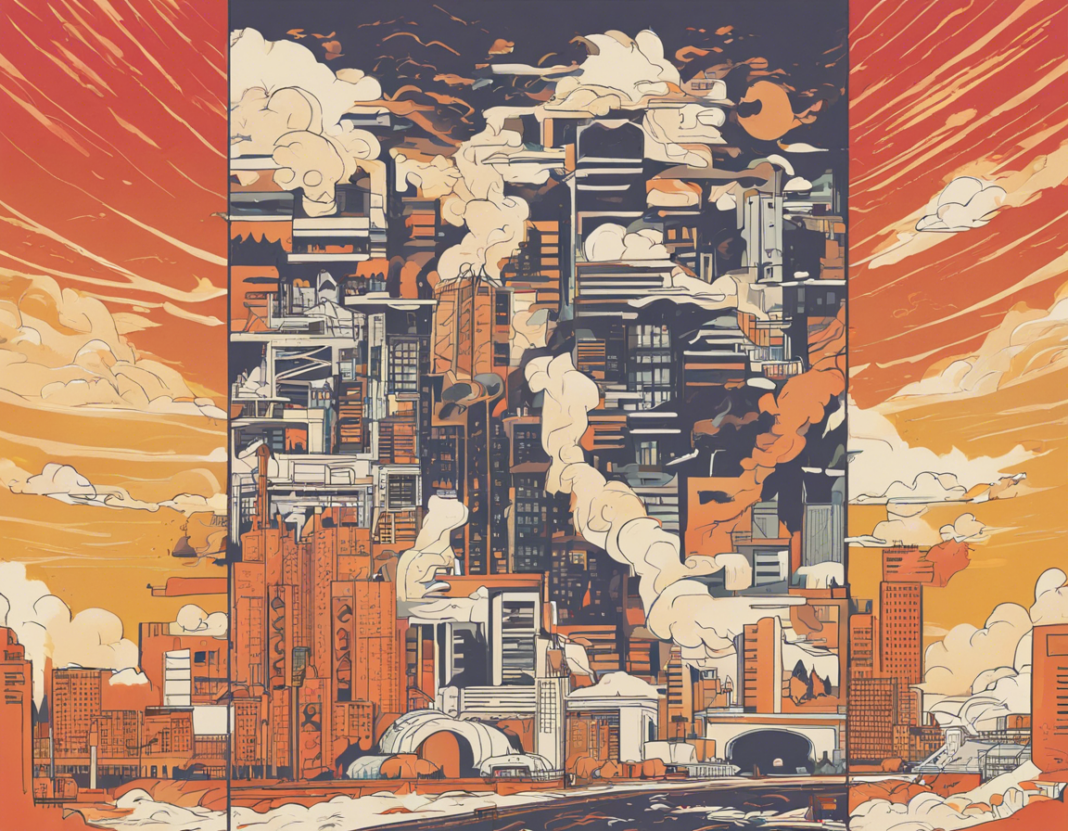Heat waves are becoming increasingly common due to climate change and extreme weather patterns. During a heat wave, temperatures soar above the normal range and can cause health risks, particularly for vulnerable populations such as the elderly, children, and people with certain medical conditions. In this guide, we will explore what heat waves are, their causes, and most importantly, provide you with practical tips on how to stay cool and safe during a heat wave.
What is a Heat Wave?
A heat wave is a prolonged period of excessively hot weather, which may be accompanied by high humidity. The World Meteorological Organization defines a heat wave as five or more consecutive days of high temperatures that are substantially above the average for the region and time of year.
Causes of Heat Waves
Heat waves are primarily caused by a combination of atmospheric conditions and human activities. Some of the key factors contributing to heat waves include:
– High-pressure systems: These systems can cause air to sink and warm up, leading to increased temperatures.
– Lack of cloud cover: Clear skies allow the sun’s rays to heat the earth’s surface more effectively.
– Urban heat island effect: Urban areas with concrete and asphalt absorb and retain heat, leading to higher temperatures.
Understanding Heat Wave Alerts
During periods of extreme heat, weather agencies issue heat wave alerts to warn the public about the dangerous conditions. It is important to pay attention to these alerts and take necessary precautions to protect yourself and your loved ones.
Types of Heat Wave Alerts
- Excessive Heat Watch: Issued when conditions are favorable for an upcoming heat wave.
- Excessive Heat Warning: Issued when a heat wave is imminent or already occurring.
- Heat Advisory: Issued when less severe heat conditions are expected.
Tips for Staying Cool During a Heat Wave
It is essential to take proactive measures to stay cool and hydrated during a heat wave to prevent heat-related illnesses such as heat exhaustion and heatstroke. Here are some effective strategies to help you beat the heat:
Stay Hydrated
- Drink plenty of water throughout the day to stay hydrated.
- Avoid caffeinated and alcoholic beverages, as they can dehydrate your body.
Keep Your Home Cool
- Use fans and air conditioning to circulate air and lower indoor temperatures.
- Close blinds or curtains during the hottest part of the day to block out sunlight.
Dress Appropriately
- Wear lightweight, loose-fitting clothing in light colors to reflect sunlight.
- Opt for breathable fabrics such as cotton to help your skin stay cool.
Stay Indoors During Peak Heat Hours
- Limit outdoor activities during the hottest part of the day, typically between 10 a.m. and 4 p.m.
- If you must be outside, seek shade and take frequent breaks in a cool area.
Cool Your Body
- Take cool showers or baths to lower your body temperature.
- Use damp towels or ice packs on your neck, wrists, and ankles for quick relief.
Eat Light Meals
- Avoid heavy, hot meals that can raise your body temperature.
- Opt for cool, refreshing foods like salads, fruits, and smoothies.
Check on Vulnerable Individuals
- Seniors, children, and individuals with chronic illnesses are more susceptible to heat-related conditions. Check on them regularly and ensure they are staying cool.
Frequently Asked Questions (FAQs)
1. What are the signs of heat exhaustion?
Signs of heat exhaustion include heavy sweating, weakness, dizziness, nausea, headache, and muscle cramps. If you experience these symptoms, move to a cooler place, drink water, and rest.
2. How can I protect my pets during a heat wave?
Ensure your pets have access to shade, fresh water, and never leave them in a parked car. Limit exercise on hot days and be mindful of hot pavement that can burn their paws.
3. Is it safe to exercise outdoors during a heat wave?
It is best to exercise during the cooler parts of the day, such as early morning or evening. Listen to your body, stay hydrated, and take breaks as needed.
4. What should I do if someone is experiencing heatstroke?
Heatstroke is a medical emergency. Call 911 immediately, move the person to a cooler place, and cool their body with wet cloths or a bath until help arrives.
5. Can certain medications make me more susceptible to heat-related illnesses?
Yes, some medications can interfere with your body’s ability to regulate temperature. Consult your healthcare provider to understand if your medications increase your risk during a heat wave.
6. How can I help my garden survive a heat wave?
Water your plants deeply and less frequently to encourage deep root growth. Mulch the soil to retain moisture, and consider providing shade using umbrellas or fabrics during extreme heat.
7. What role does humidity play in a heat wave?
High humidity levels can make temperatures feel hotter because sweat evaporation is less efficient in moist air. Pay attention to both temperature and humidity levels when assessing heat risks.
8. Are there specific clothing materials that can help keep me cool during a heat wave?
Fabrics such as linen, cotton, and moisture-wicking materials are breathable and help keep your body cool by allowing sweat to evaporate. Avoid synthetic fabrics that trap heat.
9. What are some common myths about staying cool during a heat wave?
Myth: Drinking ice-cold water will cool you down faster. Truth: Room-temperature water is absorbed more quickly by the body and helps regulate temperature efficiently.
10. How can I prepare for a heat wave in advance?
Create a heat wave emergency kit with essentials like water, non-perishable snacks, medications, first aid supplies, and a battery-powered fan. Develop a heat wave plan for your family and pets.
By following these tips and staying informed, you can navigate through a heat wave safely and minimize the risk of heat-related illnesses. Remember to prioritize your health and well-being during extreme weather conditions and take proactive steps to stay cool and hydrated.

